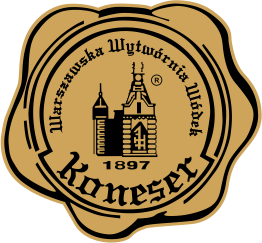The history of vodka is filled with questions, myths, and curiosities. Vodka has evolved over the centuries in terms of taste, quality, composition, and production methods.
The history of strong alcohol somewhat similar to what we now know as vodka did not begin in Poland. According to official knowledge, the first distillation of alcohol in Europe was carried out around 400 AD by the Greek alchemist Zosimos of Panopolis. Later, in the writings of Arab alchemists, there were mentions of strong alcohol obtained through the distillation of wine or fermented malt, which was purportedly believed to have magical properties
In the 8th century, Greeks were already drinking “burning water from grain,” and Raymond Lulle called vodka “quintessence,” obtaining it through distillation “using the heat generated from horse manure piled up.” This strong alcohol, known by monks and alchemists in Latin as “aqua vitae” (water of life) or more colloquially as “okowita,” was used as a medicine or cosmetic. It was sold in pharmacies until the 16th century. Perhaps the first to create primitive vodka were the Chinese. It is said that they distilled the first strong alcohol hundreds of years before our era from rice and sugar. However, there is no way to confirm this. Who first began producing vodka as a beverage rather than a medicinal remedy? This is also a question without a definitive answer.
Some historians claim that the Poles began producing vodka in the 14th century, as a distillate from potatoes or grains. Others believe that Russians first produced vodka in the 16th century due to distilling grapes or honey. Yet another theory attributes the invention of drinking vodka to the Swedes, who in the 17th century began producing strong alcohol from rye. All of these theories have various arguments and evidence to support them, but none are ultimately confirmed.
Therefore, we can say that vodka was invented by people who were looking for a way to obtain a high-proof alcoholic beverage from available raw materials.
















